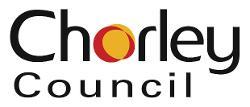Agenda item - Evaluation Findings
Agenda item
Evaluation Findings
- Meeting of Chorley Public Services Reform Executive, Wednesday, 18th October 2017 4.00 pm (Item 23b)
Minutes:
Councillor Bradley then invited Vicky Willett to provide an overview of the evaluation for year two of the Chorley Public Service Reform Work programme.
This was supported by a summary document, and full evaluation report provided as part of the agenda pack. Vicky advised that building on the findings from year one, which tested concepts and principles of public service reform, year two helped formalise processes and ways of working within a locality.
Vicky advised that the evaluation covers work delivered from January to October 2017 in year two of the work programme, with the following objectives:
· A true test of co-location
· Development of work with primary care at scale
· Building Community resilience
· Supporting system wide transformation
An overview was provided on the four main workstreams, which were:
- Co-located multi agency team
- Primary Care Hub
- Building Community Resilience
- Integrated Community Wellbeing
Using case studies, profiling, and findings from the activity delivered under these workstreams, key learning has been:
· Early intervention works
· Shared intelligence is essential
· Co-location is a platform for improving workforce relationships
· Integration methods require flexible implementation
· Coordination is key
· Resilience starts in communities
· The Integrated Community Wellbeing Service provides a vehicle for leading and influencing the longer term wellbeing of communities
Overall the Chorley Public Service Reform Partnership has achieved great things over the past two years, and has established itself as a leading group on public service reform in Central Lancashire, by having a cohesive approach and delivering outcomes that show potential of creating efficiencies to support and sustain future change and deal with increasing demand.
All partner organisations were thanked for their involvement and for the work completed and the Chorley Public Service Reform Implementation Group were also thanked for their support in producing the findings for the evaluation.
The members of the Executive were asked to provide feedback on the findings. Comments included:
· Positive findings on the value of Lancashire Wellbeing Service involvement, which has been shared with commissioners;
· Coordination needs to be in place on multi-agency groups, as without this groups are not as effective;
· Consideration of costs of wider referrals, taking into consideration recent work from Lancashire Wellbeing Service with New Economics Foundation;
· Acknowledging that accurate costings are difficult, but key focus should be on overall outcomes and ability to reduce resource required on managing activity;
· Support for work on early prevention as the way of supporting transformation;
· Agreement that evaluation reflects activity completed, with very positive outcomes;
The members of the Executive were asked to consider the longer term plan to move forward as a strategic partnership. Three next steps were proposed:
- Support the development and adoption of key Central Lancashire strategies including the Out of Hospital Strategy and future Prevention Strategy.
- Develop a Chorley delivery plan for key strategies (to be led by the Executive and aligned to the Our Health Our Care programme) that embeds learning to date and recognises the role of wider partners in delivering transformational place-based change. This should include consideration of new structures such as GP collaboratives and the Integrated Community Wellbeing Service as vehicles for change.
- Aligned to the delivery plan, produce a resourcing and workforce plan to support integrated working; this should explore options for shared resource to facilitate local strategic delivery and links to future commissioning priorities.
Discussion points noted were:
· How the positive outcomes can be replicated at scale across wider areas, and built into transformation activity;
· Some activity e.g. coordination support will come at a cost, and if partners agree with further work, then resources and funding will need to be committed to;
· Support from partners on multi-agency working as benefits seen from operational level on this;
· Need to move towards prevention, linking with the new prevention strategy and Our Health, Our Care programme;
· Retain pace and ability to deliver on bigger scale, consider who is best placed to affect change;
· Consider natural geographies e.g. South Ribble, and work in development to reduce any duplication; and
· Look for opportunities with CCG commissioning delivery plans for next year.
There was broad agreement from the Executive on the proposed approach, and it was agreed to work up a delivery plan for approval at the next Executive meeting.
Action: PMO to develop a delivery plan for presentation at the next Executive.
Support was offered to help raise profile of the good practice in Chorley at Our Health, Our Care Programme Board.
Action: Sarah James to advise PMO of next Our Health, Our Care Programme Board




